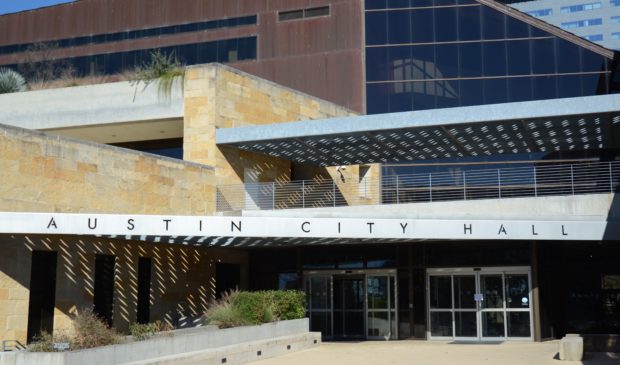Council looks beyond the budget
Friday, August 30, 2019 by
Ryan Thornton City Manager Spencer Cronk sat down with Council members at a special called work session Thursday to give an overview of four budget-related topics that have come up in recent weeks: the Hotel Occupancy Tax; an emergency-response report by the Meadows Mental Health Policy Institute; the allocation of funds to fight homelessness; and the budget as a whole.
Council showed particular interest in incorporating the financial and structural advice from the Meadows report, a study featuring a series of recommendations aimed at integrating mental health services into emergency medical services.
Council Member Ann Kitchen said she’s satisfied with the results of a pilot that began Aug. 1 to introduce mental health professionals into the city’s emergency response process, and is ready to begin the process of hiring and training clinical staff.
B. J. Wagner, senior director of Smart Justice and Adult Policy at Meadows Mental Health Policy Institute, said the largest cost of implementing the program would be the need for additional staff, which she estimated at a minimum of $1.2 million, with options for oversight pushing costs closer to $1.5 million.
Besides costs, Wagner said conducting the pilot has prepared the city to move forward quickly with the new structure if Council so chooses. “Really, it would be the time around the hiring,” she said. “We’ve worked out a large number of the policies and procedures for (the Austin Police Department) so just adding (Emergency Medical Services), which we’re just now starting, would not take that much more time to do.”
Mayor Steve Adler was also on board to further develop the program, placing it at the top of the city’s list for additional funds. “As we look at budget priorities,” he said, “of things that are not in our budget, this would be my first priority.”
Adler said he is committed to the goal of staffing the police department over a period of roughly four years while simultaneously addressing the need to get mental health professionals into the field to work alongside first responders.
The city’s $62.7 million push to address homelessness was also up for discussion Thursday. Ed Van Eenoo, the city’s deputy chief financial officer, said the effort to end homelessness is “probably the singular service in the city that affects the most departments,” meaning that the funding is spread equally throughout city programs.
With an additional $17 million increase in homelessness funding over the current fiscal year, Kitchen took the opportunity to push for additional direct allocation of funding for individuals whose needs may seem less urgent, she said.
“Because we don’t have funding for everybody, we never get down to the person … who doesn’t have addiction needs, who doesn’t have mental health issues, who doesn’t have other issues and they simply need six months of rent or whatever to get back on their feet,” Kitchen said. “Those folks end up on the street for a long time, which increases the trauma, increases the likelihood that they will develop additional issues.”
In allocating limited dollars, however, Council Member Jimmy Flannigan pushed against the idea that additional money could be added to such programs without trade-offs in funding other programs. “No matter how you talk about it, there’s a finite amount of resources,” he said. “We’re going to have to just make some choices on where we put them.”
Council is scheduled to adopt the budget on Sept. 10. Further budget discussions will continue at the following meeting on Sept. 19, where staff will provide more detailed information about cultural arts and historic preservation projects and specific uses of the local hotel tax. Pending action by Council, city staffers have calculated a conservative estimate of $122.8 million in Hotel Occupancy Tax revenue for the coming year.
Photo by John Flynn.
The Austin Monitor’s work is made possible by donations from the community. Though our reporting covers donors from time to time, we are careful to keep business and editorial efforts separate while maintaining transparency. A complete list of donors is available here, and our code of ethics is explained here.
You're a community leader
And we’re honored you look to us for serious, in-depth news. You know a strong community needs local and dedicated watchdog reporting. We’re here for you and that won’t change. Now will you take the powerful next step and support our nonprofit news organization?









